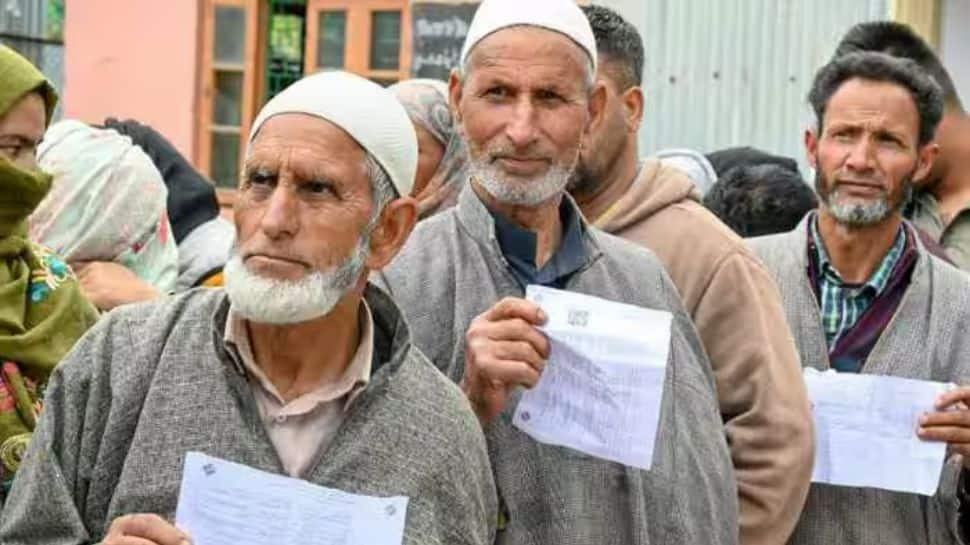All preparations have been made, and ample security arrangements are in place, especially in areas close to the Line of Control, for the third and final phase of polling in the Jammu & Kashmir assembly elections. Areas like Baramulla, Kupwara, Bandipora, Kathua, and Udhampur, near the Line of Control and the International Border, will also see polling amid tight security.
Around 39.18 lakh electors are eligible to vote across 40 assembly constituencies, with 415 candidates in the fray. The Election Commission of India has established 5,060 polling stations, including 240 special polling stations across seven districts. In Kashmir Division, 16 assembly constituencies, and in Jammu, 24 assembly constituencies will be going to the polls. More than 20,000 polling staff will be deployed for the third phase of the election.
All polling staff, along with the EVMs, have reached their respective polling stations. Notably, more than 15 lakh voters in North Kashmir will decide the fate of 202 candidates.
Among the 39,18,220 voters eligible to exercise their franchise, there are 20,09,033 male voters, 19,09,130 female voters, and 57 third-gender voters. As many as 1.94 lakh youth between the ages of 18-19 years, along with 35,860 persons with disabilities (PwDs) and 32,953 elderly voters above the age of 85, are also eligible to exercise their franchise in this phase. Twenty-nine polling stations have been established near the LOC/IB for residents living there.
Considering security concerns, particularly along the Line of Control with Pakistan, security measures have been significantly heightened.
DIG North Kashmir, Maqsool-ul-Zaman, said that security forces are actively conducting area domination operations to ensure the safety of both polling staff and voters across Baramulla, Kupwara, and Bandipora.
The important candidates in the fray in the last phase of the assembly elections include Sajad Gani Lone of People’s Conference, Muzaffar Hussain Baig as an Independent, Raman Bhalla from Congress, and Tara Chand from Congress.
The Election Commission is also leveraging technology. Webcasting of polling stations and GPS tracking for vehicles has been implemented in almost all polling stations. CCTV cameras will be used for live webcasting to control rooms established at the district and CEO office. The cameras will be positioned in such a way that they do not violate the secrecy of the vote. Voting will take place from 7:00 am to 6:00 pm.

